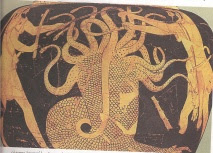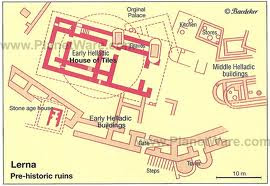Queens Mistresses and Ladies.
There are three words in Greek that
can be translated as Queen Lady or Mistress.
Ἄνασσα
was a archaicism and ποτνια
and the related forms δέσποινα and δέσποτις can be appplied to a woman whether she
was human or mortal.
The most common word in classical times was
βασίλεια which with a shift of accent βασιλεία also meant realm. The Greeks
changed this by adding other feminine suffixes to the βασιλε radical.
Linear B texts give us an earlier form of *gwasir
or mayb even*wasil?
I rather prefer *gwasir since we now of other
words in Classical Greek with an initial B that derived from a change of IE *GW
to B.
Other words are βασιληίς βασιλίς βασίλιννα and
βασίλισσα.
Do I hear anyone thinking kyria? That only
translates as lady and never to my knowledge as Queen?




